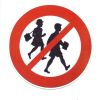10 War History Books That Reveal Hidden Truths
Curated by experts Peter Hitchens, Ben Dreyfuss, and Martin Dugard, these War History Books offer rich perspectives on global conflict.




What if the stories you think you know about war are just a fraction of the bigger picture? War history reveals not only the clash of armies but the intricate human experiences, political gambits, and global consequences that ripple through time. Today, understanding these layers has never been more vital as conflicts continue to shape our world.
Experts like Peter Hitchens, a journalist known for his sharp political commentary, and Ben Dreyfuss, Editorial Director at Mother Jones, bring unique insights that challenge common narratives. For example, Hitchens highlights the surprising depth of FDR's support for Stalin in WWII while Dreyfuss credits Barbara Tuchman’s vivid account of the July crisis for illuminating World War I’s outbreak.
These carefully selected books offer proven frameworks to grasp war's complexities. For those wanting tailored knowledge focused on specific conflicts, strategies, or personal perspectives, consider creating a personalized War History book that builds on these expert insights.
Recommended by Balaji S. Srinivasan
CEO and Co-Founder of 21, Andreessen Horowitz board partner
“@ScottFlear In the Asian theater, World War 2 arguably began in 1937 with the Japanese attack on China. One of the interesting things about McMeekin's book is that it unifies the European and Asian theaters from the Soviet perspective.” (from X)
by Sean McMeekin··You?
by Sean McMeekin··You?
When Sean McMeekin first realized how the conventional narrative of World War II overlooks the pivotal role of Stalin, he re-examined the war through the Soviet lens. His deep dive into Soviet, European, and US archives reveals that Stalin, not Hitler, orchestrated much of the conflict’s direction, especially in the Asian theater and the war’s extensive reach across Eurasia. You’ll gain insight into how Stalin's strategic aims shaped the war’s course, the critical impact of Lend-Lease aid from the US and Britain, and the broader geopolitical consequences that still resonate today. This book suits anyone interested in a fresh perspective on WWII, especially those curious about Soviet strategy and the global dynamics beyond the usual Western focus.
Recommended by Martin Dugard
#1 New York Times bestselling author
“Alex Kershaw is the master of putting the reader in the heat of the action. Against All Odds is vivid and compelling, a crisp narrative about heroism, war, and going above and beyond the call of duty.”
by Alex Kershaw··You?
Alex Kershaw, a New York Times bestselling journalist with a background steeped in World War II history, crafts a vivid narrative in this book that takes you from the deserts of North Africa to the heart of Nazi Germany. You gain insight into the lives of four extraordinary Medal of Honor recipients, uncovering not just battlefield heroism but the complex aftermath of their wartime experiences. The book draws heavily on personal interviews and primary sources, offering detailed portraits that go beyond typical war stories. If you want to understand the human cost and valor in WWII from an intimate, personal angle, this book delivers with clarity and depth.
by TailoredRead AI·
by TailoredRead AI·
This personalized book provides a comprehensive exploration of war history, focusing on key conflicts, strategic developments, and political contexts tailored to your interests and background. It offers a tailored framework that highlights critical battles, leadership decisions, and the socio-political impacts of warfare across different eras. By cutting through generic narratives, it fits your specific context, whether you seek deep dives into particular wars or broad overviews of military evolution. The book addresses methodological approaches for analyzing war outcomes and offers strategies to synthesize complex historical events with your unique goals in mind, making it a focused resource for understanding the multifaceted nature of warfare.
Recommended by Ben Dreyfuss
Editorial Director at Mother Jones
“I shall confess that all of my knowledge about the July crisis comes from either the first chapter of Barbra Tuchman’s “Guns of August” or the BBC docudrama “37 Days” starring the actor who played Emperor Palpatine. But that’s a great book and the miniseries is really good.” (from X)
by Barbara W. Tuchman··You?
by Barbara W. Tuchman··You?
Barbara W. Tuchman, a two-time Pulitzer Prize-winning historian, draws on her deep expertise in early 20th century history to unravel the complex events leading to World War I. You’ll gain a detailed understanding of the political missteps and alliances that escalated tensions, especially during the critical month of August 1914. Chapters vividly illustrate the clash between old-world pomp and the brutal realities of modern warfare, including the debut of technologies like tanks and poison gas. If you want to grasp how a seemingly avoidable conflict spiraled into global catastrophe, this book offers a narrative that balances human drama with strategic analysis, ideal for anyone interested in the intricate causes of war.
Recommended by Kirkus Reviews
“A wide-ranging survey of the American way of war, expensive and incessant, in support of an empire we’re not supposed to have. Vine offers much to ponder about our militarized foreign policy and its deep antecedents.”
by David Vine··You?
When David Vine first realized the persistent global footprint of American military bases, he crafted a detailed narrative tracing U.S. wars from Columbus's arrival in Guantanamo Bay to modern conflicts like those against the Islamic State. Drawing on anthropological research across fourteen countries, Vine reveals how the U.S. has maintained a self-reinforcing system of permanent warfare supported by an expansive network of foreign bases. You’ll gain insights into the interplay of political interests, racism, and militarism that fuel this ongoing state of conflict, with chapters unpacking the consequences on both global populations and American society itself. This book suits anyone seeking to understand the deep roots and broad impact of America’s war-driven foreign policy.
Recommended by The Philadelphia Inquirer
“Stunning.... The best single-volume history of the war.... Assembled from a multitude of overlapping voices, American and Vietnamese, [The Vietnam War] tells the long story from every conceivable angle, from veterans and protesters to draft-dodgers and prisoners of war to politicians and grunts.”
by Geoffrey C. Ward, Ken Burns··You?
by Geoffrey C. Ward, Ken Burns··You?
When Geoffrey C. Ward, a historian and screenwriter with a background in award-winning documentary filmmaking, teamed up with Ken Burns, they crafted a deeply immersive exploration of the Vietnam War. You gain insights from a wide range of perspectives—soldiers, politicians, protestors, and families—revealing the complexity behind the conflict’s causes and consequences. The book doesn’t just revisit battles; it probes the social and political upheaval that still resonates today, with detailed interviews and narratives that challenge simplified views. If you're looking to understand the war's multifaceted legacy beyond headlines and myths, this book offers a compelling, richly illustrated narrative that confronts the enduring divisions it created.
by TailoredRead AI·
This personalized book offers a structured 30-day plan designed to rapidly deepen your understanding of war history and enhance your analytical skills. It provides a tailored framework that focuses on key conflicts, strategic military decisions, and political contexts relevant to your specific interests and goals. By cutting through generalized narratives, it fits your unique background and desired focus areas, whether that’s tactical battlefield analysis or geopolitical implications. The book emphasizes daily focused lessons that build progressively, enabling you to develop nuanced perspectives and critical thinking abilities applicable to contemporary and historical warfare studies.
Recommended by The New York Times
“...a mini museum between the covers of a book.”
When DK first set out to update this visual history, their long-standing expertise in illustrated nonfiction shaped a detailed exploration of World War I that goes beyond dates and battles. You get a richly layered understanding through maps, timelines, and vivid photographic galleries that showcase weaponry, equipment, and key figures like David Lloyd George. Eyewitness accounts bring the human experience to life, making it clear how the war unfolded and changed history. This book suits anyone wanting a visually immersive, fact-driven account rather than a narrative-heavy text, especially those curious about the technological and social aspects of the Great War.
Recommended by James Hornfischer
Author of Neptune's Inferno, Naval Historian
“A lucid and learned exposition of the grand chess match between high commanders in the middle years of the Pacific War, vividly evoking the grit and gristle of its many horrors and triumphs. Ian W. Toll is a superb historian whose writing appeals to both the head and the heart.”
by Ian W. Toll··You?
by Ian W. Toll··You?
When Ian W. Toll examined the pivotal years of the Pacific War, he zeroed in on the complex amphibious campaigns between 1942 and 1944 that decisively shifted the tide against Japan. You’ll gain a granular understanding of the multifaceted military operations, from intense naval battles to jungle warfare, alongside the political and logistical struggles behind the scenes. Toll’s detailed recounting, supported by firsthand letters and diaries, reveals not just strategy but the human cost and interservice tensions that shaped the conflict. This book is suited for anyone eager to grasp the operational and strategic heart of World War II's Pacific theater, especially military history enthusiasts and scholars.
Recommended by Antony Beevor
Historian and war author
“An astonishing achievement.”
by Peter Englund, Peter Graves··You?
by Peter Englund, Peter Graves··You?
What if everything you knew about the decisive moments of World War II was reframed through the eyes of the individuals who lived it? Peter Englund, a historian and Swedish Academy member, crafts a narrative drawn solely from diaries, letters, and memoirs, immersing you in the personal experiences behind major November 1942 events. You'll gain nuanced insights into the human dimension of battles like Stalingrad and Guadalcanal, understanding not just strategies but the daily struggles and hopes of soldiers and civilians alike. This approach suits those eager to grasp the war’s impact beyond grand tactics, exploring the intimate realities that shaped history.
Recommended by Andrew Roberts
New York Times bestselling author
“In his exposition of this thesis, displaying a depth of knowledge of the period that is often simply astounding, Hanson has written what I consider to be the most important single-volume explanation of World War II since Richard Overy's Why the Allies Won (1996)-that is, for a generation.”
by Victor Davis Hanson··You?
by Victor Davis Hanson··You?
The central debate Victor Davis Hanson tackles is whether World War II was an unprecedented global cataclysm or merely a complex continuation of older military patterns. Hanson, a military historian rooted in classical studies and a senior fellow at Stanford's Hoover Institution, embarks on tracing the war's battles across air, sea, and land, detailing how disparate conflicts merged into a single global struggle. You’ll gain insights into the strategic missteps of the Axis powers and how industrial warfare reshaped combat without breaking from historical precedent. This book suits anyone eager to understand the interconnectedness of World War II’s theaters and the deeper military logic behind its outcome.
by Alexander L. Sheppard··You?
What if everything you knew about World War II battles was incomplete? Alexander L. Shepperd challenges common narratives by diving into lesser-known conflicts and the intricate military and intelligence maneuvers that tipped the war’s course. You’ll explore pivotal moments like the Battle of Stalingrad and Midway with a focus on how tiny details influenced outcomes, far beyond the usual focus on well-known events like D-Day or Auschwitz. This book suits anyone hungry for a deeper understanding of the war’s turning points, especially those intrigued by the interplay of strategy, politics, and human cost.
Get Your Personal War History Strategy Now ✨
Stop sifting through countless books. Unlock targeted war history insights that fit your interests without overwhelm.
Join 15,000+ War History enthusiasts who've personalized their approach
Conclusion
Across these ten books, three clear themes emerge: the importance of viewing war from multiple perspectives, the interplay of political strategy with human experience, and the enduring impact of conflict on global history. If you seek to understand the full scope of war, start with Stalin's War to explore the Soviet role, or dive into The Vietnam War for a multifaceted narrative.
For rapid immersion, combine The Guns Of August with November 1942 to grasp the political sparks and personal stories that shaped pivotal battles. And once you've absorbed these insights, create a personalized War History book to connect broad principles to your unique interests and goals.
Understanding war history is never complete, but these books provide a strong foundation to question, reflect, and learn from the past in ways that inform our present and future.
Frequently Asked Questions
I'm overwhelmed by choice – which book should I start with?
Start with 'Stalin's War' for a fresh WWII perspective or 'The Guns Of August' to understand the origins of WWI. These set broad contexts that make later books more meaningful.
Are these books too advanced for someone new to War History?
Not at all. Books like 'World War I: The Definitive Visual History' use visuals to ease newcomers in, while narratives like 'Against All Odds' offer engaging personal stories accessible to all.
What's the best order to read these books?
Begin with the global contexts in 'The Guns Of August' and 'Stalin's War,' then explore specific conflicts like 'The Vietnam War' and 'The Conquering Tide' before diving into personal narratives such as 'November 1942.'
Do I really need to read all of these, or can I just pick one?
You can pick based on your interest—for strategic analysis, try 'The Second World Wars'; for personal stories, 'Against All Odds' is ideal. Each offers distinct insights, so choosing based on your focus is best.
Are any of these books outdated given how fast War History changes?
War history evolves with new research, but these books reflect thorough, recent scholarship and perspectives that remain highly relevant for understanding major conflicts.
How can I get war history insights tailored to my specific interests and time constraints?
While these expert books offer rich knowledge, you can create a personalized War History book that focuses on your unique goals and background. It complements these works perfectly. Learn more here.
📚 Love this book list?
Help fellow book lovers discover great books, share this curated list with others!
Related Articles You May Like
Explore more curated book recommendations









